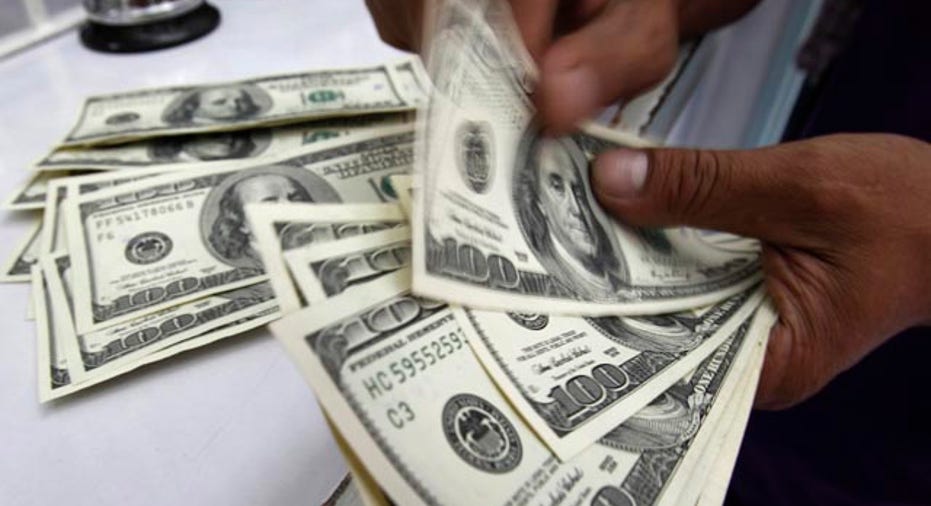Here's Where You Should Stash Your Cash

Even the most aggressive investors need to keep some cash on hand. But nowadays, it's hard to get any kind of return on the money you have on the sidelines.
Ever alert to try to fill a need, the exchange-traded-fund industry has come up with some solutions that purport to give you better alternatives for your cash. But as it turns out, they're all inferior to standbys that have been around for years -- and that will give you better returns with a whole lot less risk.
The rise of money ETFs Traditionally, investors have gravitated to money market mutual funds for their liquidity and convenience. With fairly low expenses, many money market funds let you capture nearly all of the income that prevailing interest rates provide. Under normal circumstances, that's more than adequate for most investors' needs.
Unfortunately, those prevailing interest rates are close to zero right now. That has pushed the average yield on money market funds all the way down to 0.02%. Since no one likes to earn a rate with that many zeros in it, investors are hungry for better-paying alternatives. In addition, some concerns about the type of investments that money market funds make, some of which include exposure to European banks, have made investors nervous about keeping their money in them.
That's where money ETFs come in. These funds come in different flavors. If you need the security and protection of Treasuries, then SPDR Barclays Capital 1-3 Month Treasury Bill (NYSE: BIL ) closely mimics the duration of short-term Treasury bills. On the other hand, the iShares Barclays Short Treasury Bond Fund (NYSE: SHV ) holds Treasury securities that have somewhat longer maturities, thereby offering at least the prospect of better rates.
For those willing to take still more risk, the Pimco Enhanced Short Maturity Strategy (NYSE: MINT ) is an actively traded ETF that invests in a wider array of short-term bonds, including investment-grade corporate debt. In addition, the average maturity of the fund is roughly eight months -- quite a bit longer than a standard money market fund.
Do they deliver? The problem with money ETFs is that they don't overcome the problem that money market funds have. Even with slim expense ratios of 0.13% to 0.15%, the Treasury money ETFs don't earn enough income right now to get out of the red. The SPDR ETF has a year-to-date return of -0.02%, while the iShares ETF has a current SEC yield of -0.04%.
The Pimco money ETF does a better job of coming out ahead. Even after expenses, it sports an SEC yield of 0.90%. Yet although the fund's returns on a net asset value basis are strong, the actual market price returns that shareholders have earned amounted to -0.07% for the first half of the year. Moreover, when you combine the slight duration risk that comes from owning longer-maturity debt with the minimal but present default risk of corporates, you've already come a long way from most money market funds.
Finally, with any ETF, you have to consider not only the expenses associated with holding the fund but also the trading commissions you have to pay to buy or sell the funds. Those used to dealing with money market funds may never have had to deal with those trading costs before, but unless you have a lot of cash, even modest trading fees can eat into whatever income you can find.
The easier choice If you need to hold cash, the better option is an old standby: the bank savings or money market account. Believe it or not, many banks pay better rates on plain vanilla FDIC-insured accounts than you can get from these new-fangled ETFs. In particular, the banking divisions of Discover Financial (NYSE: DFS ) and Sallie Mae (NYSE: SLM ) both pay more than 1% on certain savings and money market account products, while Ally Bank and AIG (NYSE: AIG ) come in just short of the 1% mark.
Of course, these rates may not last forever. Allstate (NYSE: ALL ) recently announced it would voluntarily close its Internet banking division. With rates so low, others might well follow suit.
But as long as ultra-safe insured choices give you such an easy way to keep your cash as productive as possible, there's no good reason to resort to complicated alternatives. Cash ETFs may be an interesting innovation, but at least for now, they don't offer the returns you deserve -- or that you can get elsewhere.
Meanwhile, getting more income isn't just about where you stash your cash. For more income from the stock portion of your portfolio, you'll find 13 promising dividend stocks in this free special report from The Motley Fool. See what we've got today.
Read more financial advice from Fool.com: - Why Should I Invest? - The Right Place to Start Investing Now - 9 Ways to Pay off Debt



















